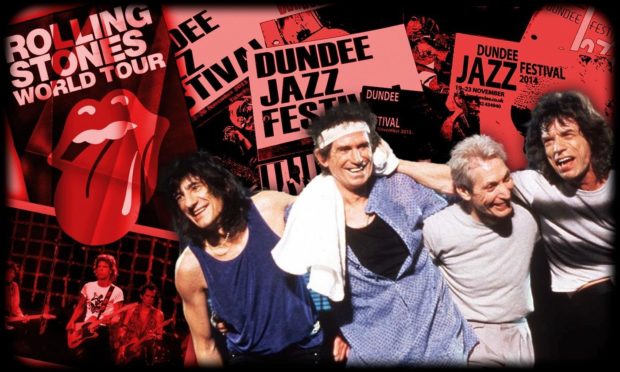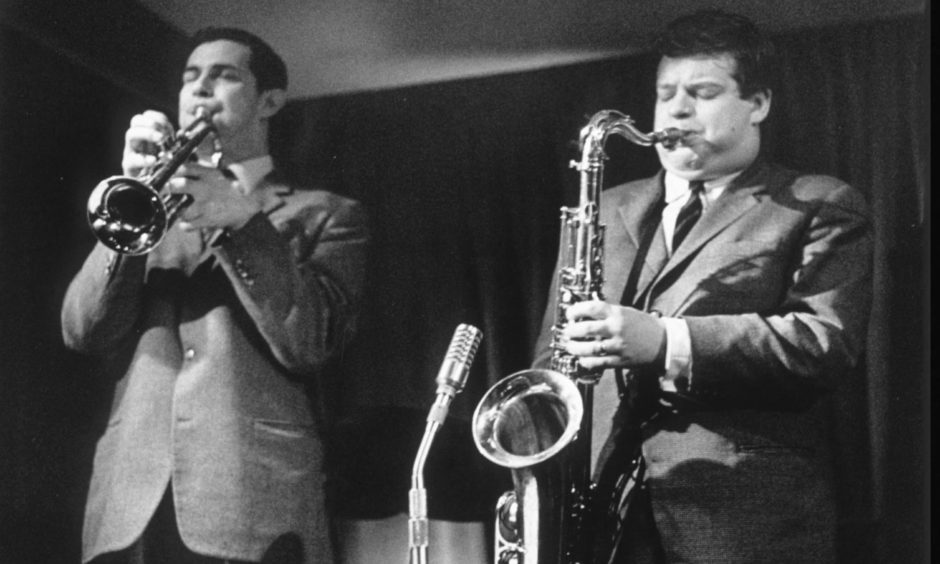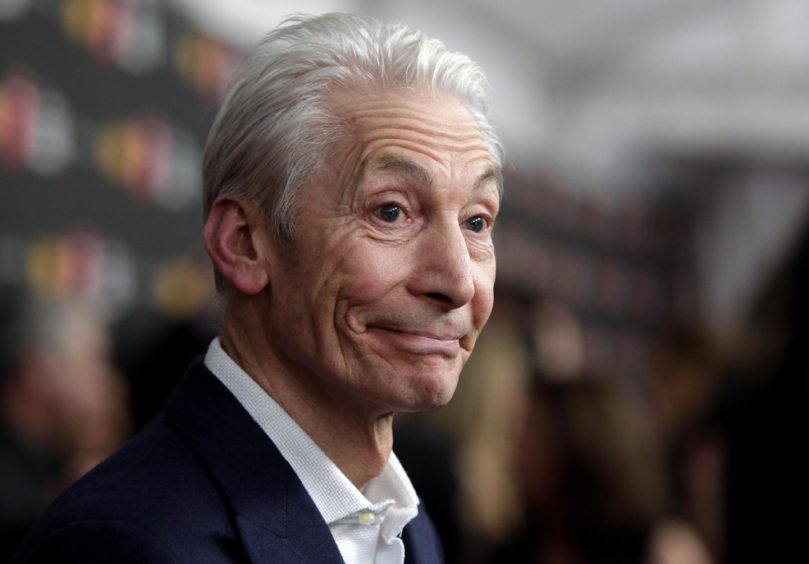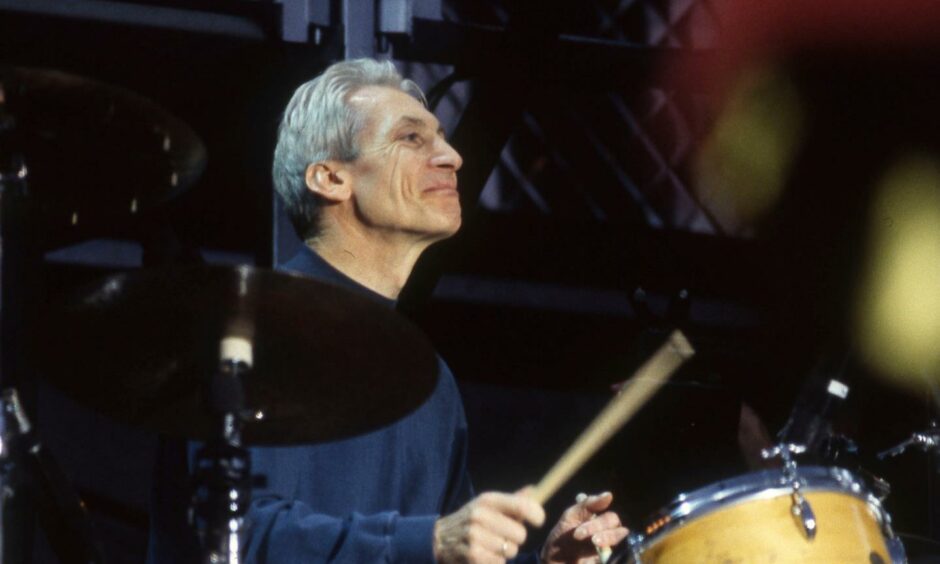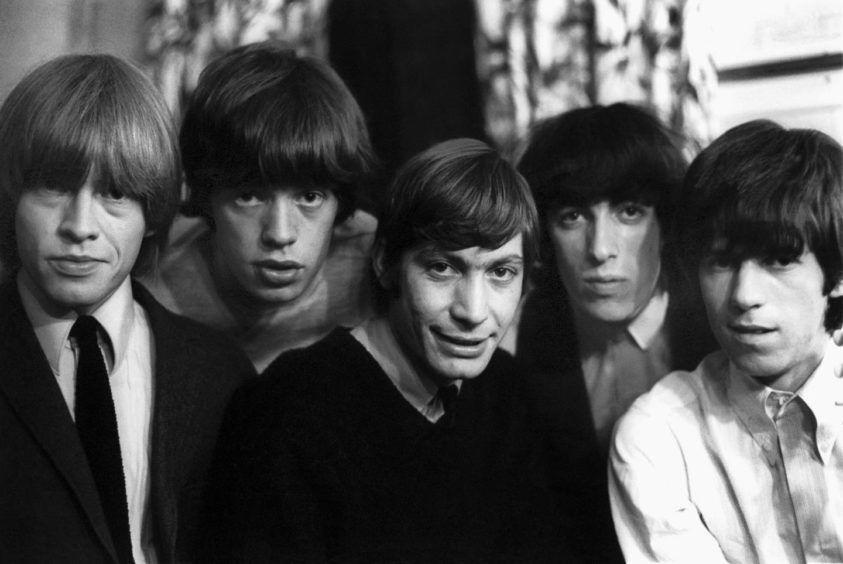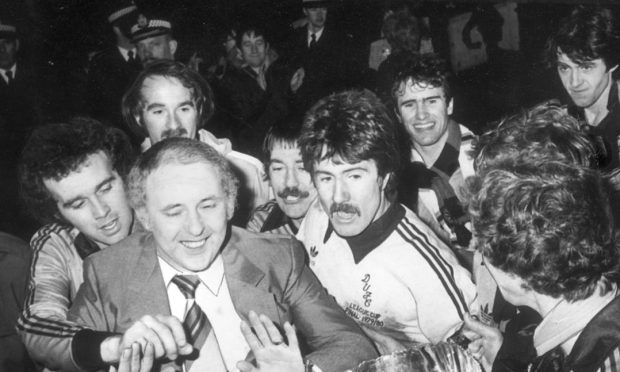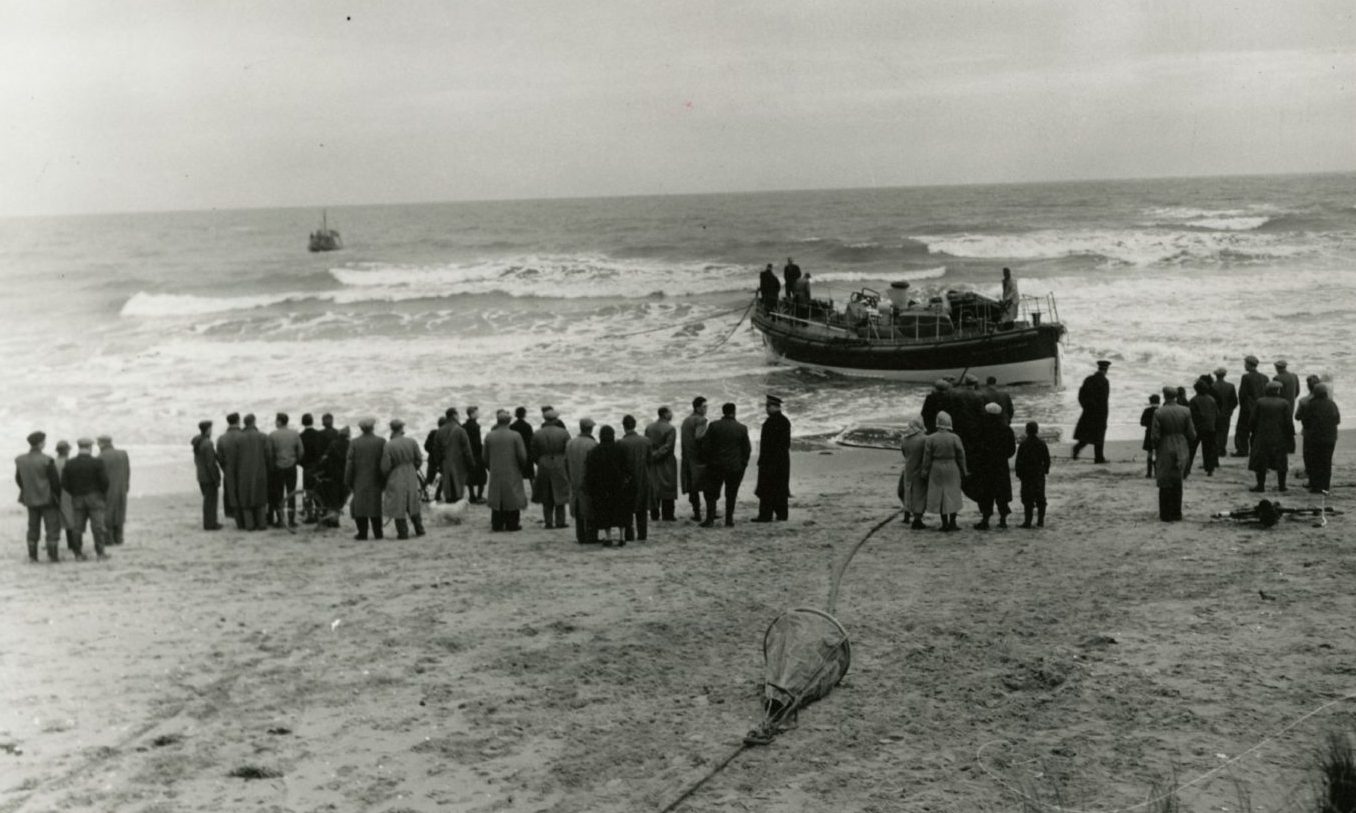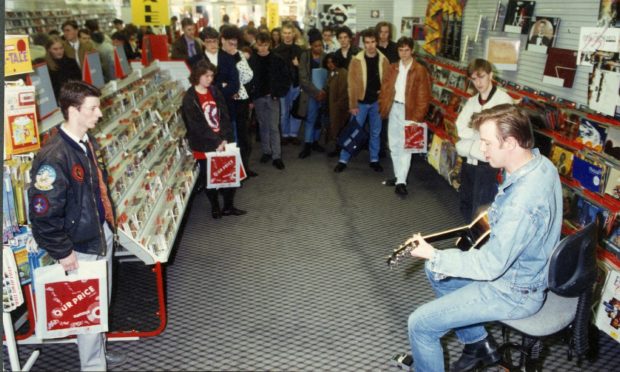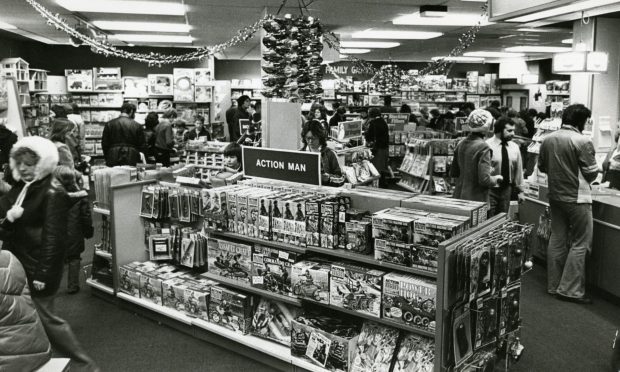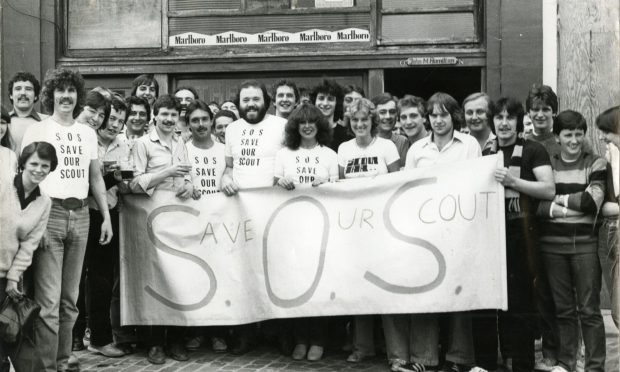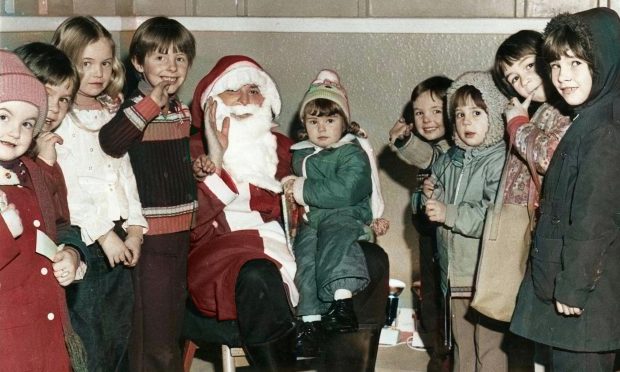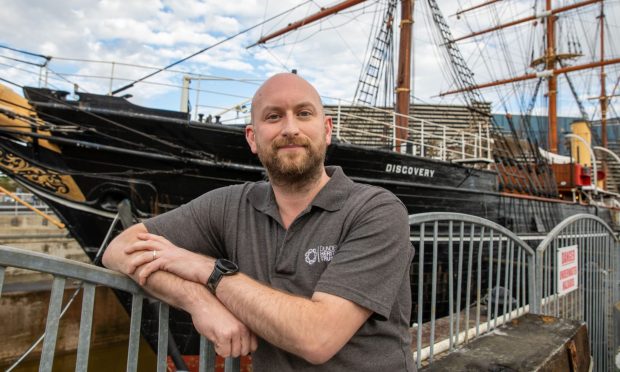How close did Rolling Stones stalwart Charlie Watts come to performing at the Dundee Jazz Festival?
Had the cards fallen differently an old pals act with a Barnhill worthy might well have seen Watts returning to the city for the first time since 1965.
Watts, you see, grew up wanting to play jazz.
His sense of swing gave the Stones’ songs their swagger from 1963 before he began living out his own dream gig when his band were on the brink.
He put together his own 33-piece extra-big band in 1985 featuring many of the biggest stars of British jazz including Jimmy Deuchar from Dundee.
Deuchar played in some of the world’s finest jazz and show bands in the 1950s and 60s alongside Johnny Dankworth, Tubby Hayes, Jack Parnell and Ronnie Scott.
He returned to live in Barnhill in the ’70s and continued to perform including regular Sunday sessions at The Sands nightclub on Broughty Ferry’s esplanade.
Deuchar then wrote a number of the tunes for the Charlie Watts Orchestra which debuted in October 1985 at Ronnie Scott’s famous jazz venue in London.
Mick Jagger and Keith Richards were in the house that night in Soho to cheer what Watts called the fulfilment of a childhood dream.
The band featured three drummers, two bassists, two vibraphonists, seven trumpeters and an 11-man reed section that was garnished by six tenor saxophonists.
Watts initially rented Ronnie Scott’s iconic joint for a week of performances before taking up invitations to perform at jazz festivals in England and Berlin.
He later brought his ensemble to New York for its American debut in 1986 before going on to tour the US in 1987 while the Stones took a break from performing.
He spoke to the Chicago Tribune newspaper during the US tour and described Deuchar as “quite brilliant” and “probably the best writer in the band”.
Watts, who himself would rarely use two words where none would suffice, added that Deuchar was a “very quiet man who commands a great deal of respect”.
Watts’ fellow Rolling Stones, Jagger and Richards, were again among the star-studded audience which watched the band garner a new following in the States.
”Well, Mick and Keith come to see the band a lot and Mick really likes it,” said Watts.
”Keith’s very annoyed, though, that we don’t have a guitar player.
“He thinks it’s a sacrilege.
“But I just told him that with 33 guys, it’s hard enough to fit everyone’s solos in as it is.”
Watts for Dundee?
But could the friendship between Watts and Deuchar have brought the Rolling Stones drummer back to Dundee to perform in the early 1990s?
Alan Steadman was the organiser of Dundee Jazz Festival who tried to persuade Watts to join the bill and he still wonders what might have been.
“Charlie Watts never lost his love for jazz nor his ability to play it,” said Alan.
“His jazz drumming – the emphasis on the second and fourth beats in the bar – was evident in a lot of Stones’ material and his rock solid, no-nonsense drumming was an integral part of their sound.
“One of the UK drummers that influenced him, and one that is not often mentioned, was a flamboyant character called Lennie Hastings who played in the band led by Alex Welsh, who came from Leith.
“He led a number of jazz outfits, the most ambitious being his big band, consisting of over 30 of the best of British and culminating in a classic live album recorded at Fulham Town Hall in 1986.
“Charlie regarded Dundee’s Jimmy Deuchar highly both as a musician in his band and as a composer and arranger.
“Jimmy did the arrangements for a number of tunes in the big band’s repertoire.
“Through their friendship I did once have the idea of asking Jimmy to invite Charlie to play with him at a Dundee Jazz Festival.
“However, due to Jimmy’s deteriorating health it never came to fruition but what an event it would have been – made even more memorable if he had stayed for the Sunday session at the Sands in Broughty Ferry!”
Watts, who died on Tuesday aged 80, went on the Steel Wheels world tour with the Stones in 1989, which ended a seven-year break in touring.
In 1991, Watts put together a small group, called The Charlie Watts Quintet, to pay homage to the music that first grabbed him while growing up in London.
Deuchar, meanwhile, who had started to suffer from ill health, continued to perform in the early ’90s, including a spell with Havana Swing.
He also launched Jazz Between the Generations in 1993, which was a series of masterclasses at Bell Street Music Centre.
It was aimed at encouraging young jazz players with a view to forming a big band along the lines of the Strathclyde Youth Orchestra.
Just before he died in 1993, at the age of 62, Deuchar was preparing to record a major work, Concerto for Joe, which he wrote for Joe Temperley.
Watts would mourn his friend’s passing.
Stones tour put brakes on offer
He went on to form The A,B,C&D of Boogie Woogie in 2009.
The band took its name from the first initials of the four members, as the band also included Axel Zwingenberger, Ben Waters and Dave Green.
That was when Alan made another approach to get Watts’ new band to perform in Dundee but his hopes were dashed when the Stones got back together.
The band returned to the studio in secret to play together for the first time since 2007 before going on a world tour to celebrate its 50th anniversary.
Alan said: “I revisited the notion some years later, this time with his boogie-woogie band in mind.
“The tentative approach remained just that, however, as he was touring the world with the Stones at the time.
“So, the Stones’ fans gain was Dundee Jazz Festival’s loss!”
Watts performed twice in Dundee with the Stones in 1964 and 1965.
The Stones played Dundee twice on May 20 1964 in a month where they crammed in an amazing 45 shows, before heading off on their first US tour.
Extra police and stewards were brought in following two shows in Aberdeen where the band was smuggled to safety to escape their screaming fans.
The Stones performed a backstage deal with Freddie and the Dreamers to prevent a riot during the gig, which signalled the changing of the guard for ’60s music.
The two acts decided to swap roles to save the Caird Hall.
The fans lined the pavements outside the Royal Hotel following the gig, chanting: “We want the Stones! We want the Stones!”
They watched and waited for the slightest hint of their idols at the windows of the hotel.
The Stones would go on to top the charts for the first time in July 1964 with It’s All Over Now, which also became a big hit in Europe.
The Stones would return to the Caird Hall in 1965 in front of thousands of sobbing, hysterical girls.
Ambulance men later described the scenes as “worse than the Tommy Steele riots” in April 1958.
Watts took it all in his stride, of course.
After all, his was the cool, calm presence that kept the Stones rolling.
“Watts was the epitome of cool,” said Alan.
“Imagine if he had stayed with Jimmy in Barnhill and then popped down to Broughty Ferry for a Sunday jazz session?
“It would have been unforgettable!
“But he’s left behind so many special memories.”
